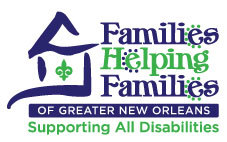Getting Ready for Managing Finances at the Age of Majority
When young people with disabilities reach the “age of majority,” they gain the right to manage their own affairs, including their money. In most states, this happens at age 18. Legally considered as adults, they may take charge of financial decisions large and small. But will they be prepared to make financial decisions for themselves? Will they have the money skills and basic understanding of finance they will need?
Source: Center for Parent Information and Resources
Getting Ready for When Your Teen Reaches the Age of Majority: A Parent’s Guide
Age of majority is the age when children legally become adults. At this time, they gain the rights of adults, which include the right to vote, marry, apply for a credit card, make medical and financial decisions for themselves, sign contracts, live independently, and much more. In most states the age of majority is age 18.
Source: Center for Parent Information and Resources, February 2017
Supported Decision-Making Brainstorming Guide
This tool can help people brainstorm ways that they are already using supported decision-making, and think about new ways supported decision-making could help the person with a disability learn to make their own safe, informed choices.
Source: National Resource Center for Supported Decision-Making, 2016
Supported Decision-Making Teams: Setting the Wheels in Motion
For thousands of years – going back to Ancient Rome – society treated people with intellectual disabilities as if they were unable to take care of or make decisions for themselves. Today, it is still expected that someone else – usually called a guardian, but in California, a conservator – will be appointed to make decisions for them. In fact, that is often the advice parents get when their children with disabilities turn 18: become their guardian/conservator as soon as possible. It doesn’t have to be that way. This paper is about your options and actions you can take to help your children make their own decisions and direct their own lives to the maximum of their abilities.
Source: National Resource Center for Supported Decision-Making, February 2017
Supported Decision-Making and Community Based Supports
Moderated by Jonathan Martinis; Erica Wood & Marcia Tewell will discuss new and innovative ways for older adults and people with disabilities to receive community-based supports and services that can increase their self-determination, independence, and access to improved life outcomes.
Source: National Resource Center for Supported Decision-Making, August 2016
Supported Decision-Making: Protecting Rights, Ensuring Choices
What does person centered planning mean when a person might have difficulty making choices? With statistics and individual cases, Jonathan Martinis challenges his audiences to re-think how they perceive risk, protection, and capacity for persons living with disabilities. Participants will gain an understanding of how less restrictive alternatives can be created, and make the most of an individual’s capabilities and supports. Jonathan Martinis is Senior Director for Law and Policy at the Burton Blatt Institute, Syracuse University.
Source: National Resource Center for Supported Decision-Making
The PRACTICAL Tool for Lawyers – Steps in Supporting Decision-Making
The PRACTICAL Tool aims to help lawyers identify and implement decision-making options for people with disabilities that are less restrictive than guardianship. It is a joint product of four American Bar Association entities – the Commission on Law and Aging, Commission on Disability Rights, Section on Civil Rights and Social Justice, and Section on Real Property, Trust and Estate Law, with assistance from the National Resource Center for Supported Decision-Making. Take a look!
Source: The National Resource Center for Supported-Decision Making, 2016
The Right to Make Choices: International Laws and Decision-Making by People with Disabilities
Autistic Self-Advocacy Network (ASAN) has released a new toolkit discussing supported decision-making (SDM) and guardianship, and the many different laws pertaining to both in the United States and internationally. The toolkit is called “The Right to Make Choices: International Laws and Decision-Making by People with Disabilities.” The toolkit will help self-advocates, policymakers, providers, and families understand how laws can make it easier or more difficult for people with disabilities to exercise the right to manage their own lives.
Source: Autistic Self-Advocacy Network, February 2016
Top 10 Mistakes Caregivers of Dependents with Special Needs May Make When Planning
A great resource to assist you in mistake-free planning for a loved one with a disability.
Source: Steven R. Fisher, ChFC, ChSNC, Special Care Planner, Mass Mutual
